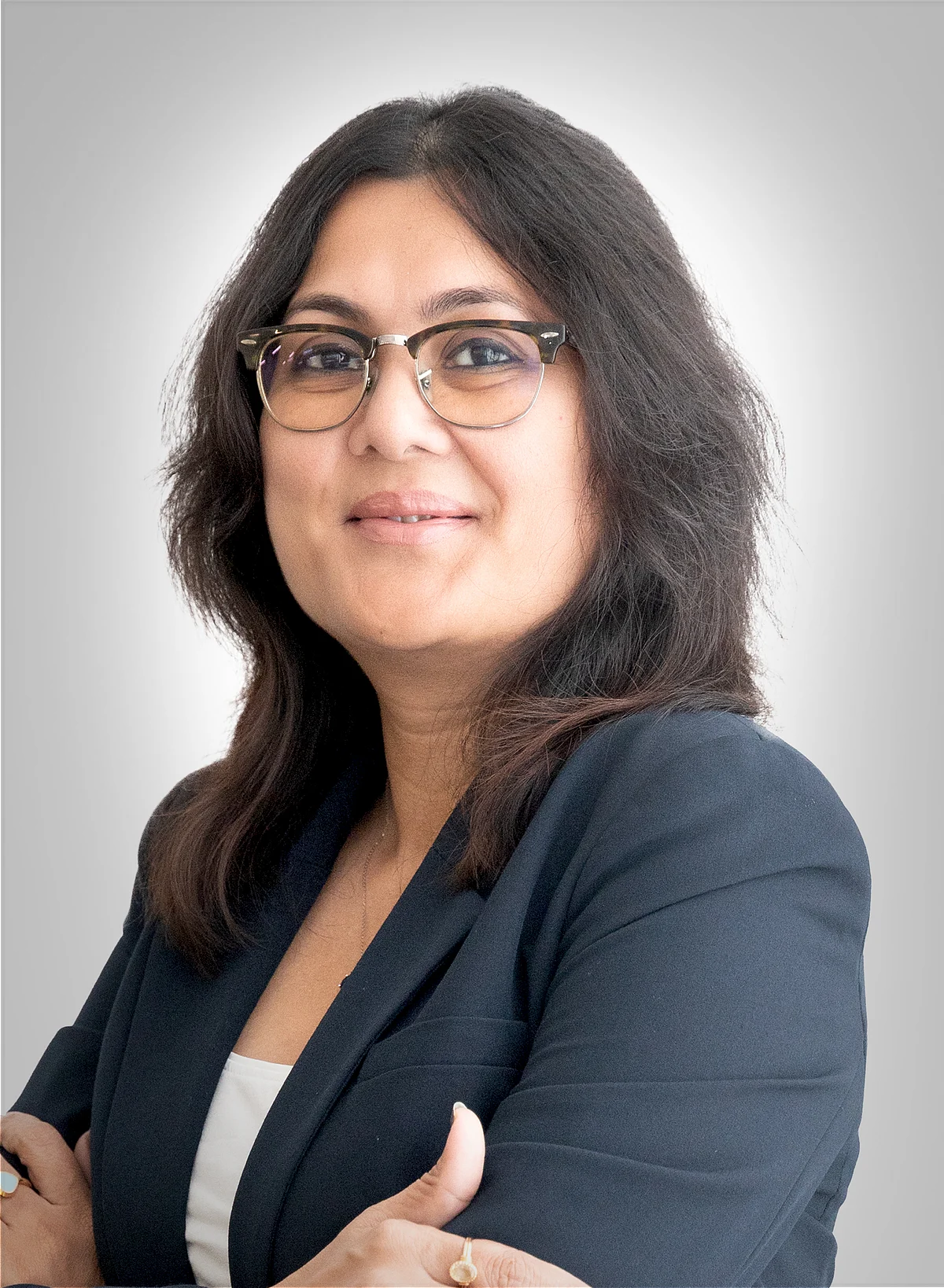
Indian Expat On The Importance Of Building A Diversified Portfolio
Indian expatriate Vidhi Shah, 41, Head of Commercial Valuations at Cavendish Maxwell, has lived in Dubai since 2010, considering it a home away from home. She reveals the important money lessons life has taught her over the years.
How would you describe your relationship with money?
Recommended For You Commvault announces expanded local partnership with HPE at Gitex Global UAE: Gold prices cross Dh500 per gram for the first time everI have seen money come and go - born into comfort, witnessing my parents lose it all, and then rebuilding through hard work and perseverance has been a humbling experience. I'm teaching my nine-year-old son early on about the importance of managing finances well because while life holds many richer treasures, it's impossible to ignore the role money plays from birth to education, career, leisure and eventually retirement. If we can learn to respect money, we'll get to enjoy both the journey and the destination a little more.
Who do you speak to about money matters? Is it something you consider taboo?
My husband and I discuss financial matters together and make a conscious effort to pass that knowledge on to our son. I don't see money as a taboo topic, but it isn't something to discuss with just anyone. It's something you keep within a close circle. Be open but mindful of where those conversations belong.
How has living in the UAE changed your relationship with and perception of money?
It has definitely shaped my perception of money and wealth. You see people who are ultra-wealthy to those working hard just to get by. It's easy to get carried away in a place that constantly celebrates success and luxury. But it's important to be balanced. Enjoy what you earn but also save wisely and plan for the future. This keeps you grounded.
What do you value spending money on?
I value spending money on things that add real meaning or long-term value. Travelling with family, spending quality time together, investing in education, and making smart financial decisions for the future all matter to me. But it's okay to splurge once in a while on something you've always wanted, even if it's not a“need.” Life is meant to be enjoyed, too. And where possible, try to help others.
Do you long-term plan your finances?
Yes. Every month, a portion of our income is allocated into liquid assets like commodities, stocks and shares, while another part goes into long-term instruments such as fixed deposits or savings earmarked for larger goals like real estate. We also set aside funds regularly for our son's education and other future needs. It doesn't have to be excessive - starting with just 10–15% makes a difference over time. For me, it's less about the exact amount and more about building the habit and maintaining the discipline. That consistency compounds financially and mentally.
What is your long-term goal or dream pegged to your finances?
It is to create stability, independence and financial freedom for my family and for myself. That means building enough to give my son the best possible education, securing our future through smart investments, and eventually having the flexibility to slow down without financial stress. I also hope to invest in assets that grow over time, like real estate, and build something lasting.
How much do you save each month?
We started small - saving around 10% when we were just starting out in our careers. Over time, with discipline, compounded investments and career growth, we've been able to increase that percentage significantly. Of course, there are always things we could have done better or sooner, but the key is consistency. If you stay diligent and committed, the results follow.
What is your greatest financial decision?
I am proud of having built a diversified investment portfolio over time. We started small, gradually investing across different asset classes like gold, stocks and shares, real estate, and fixed deposits. Over 20 years, compounding has done its job, and that steady approach has really paid off.
What is your biggest financial regret?
I wouldn't call it a regret, but a valuable learning experience. Once we invested in real estate abroad as part of a diversification strategy. While the intention was sound, it came with its own set of challenges - limited access, unfamiliar local laws, and ongoing management issues. It taught me that investments should be well-researched and aligned with your comfort zone, both geographically and operationally. It wasn't a loss in the bigger picture - it was a lesson in what not to do next time.
...

Legal Disclaimer:
MENAFN provides the
information “as is” without warranty of any kind. We do not accept
any responsibility or liability for the accuracy, content, images,
videos, licenses, completeness, legality, or reliability of the information
contained in this article. If you have any complaints or copyright
issues related to this article, kindly contact the provider above.
Most popular stories
Market Research
- Thinkmarkets Adds Synthetic Indices To Its Product Offering
- Ethereum Startup Agoralend Opens Fresh Fundraise After Oversubscribed $300,000 Round.
- KOR Closes Series B Funding To Accelerate Global Growth
- Wise Wolves Corporation Launches Unified Brand To Power The Next Era Of Cross-Border Finance
- Lombard And Story Partner To Revolutionize Creator Economy Via Bitcoin-Backed Infrastructure
- FBS AI Assistant Helps Traders Skip Market Noise And Focus On Strategy




















Comments
No comment